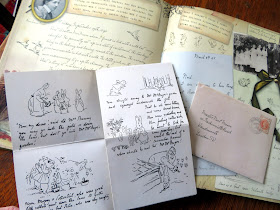I recently read an
article about Tsundoku -- which is basically the practice of buying more books than you can possibly read. I admit it. I would like the think they'll all be read. I know they won't. I will never get through the books on my pile. Books I am given. Books I had and never read (but now they look fascinating). Books I pick up at library sales or used bookstores or the next in a series I've followed for ages. Or the first in a new series, for that matter.
I am an eclectic reader. I am open to most genres (I'll skip sci-fi, dystopian novels and fantasy, though). Mysteries and biography/memoirs come to the top of my list. I'm pretty big on history or historical fiction, too. As for general fiction, well, I'll read it for book club or if passed onto me. But I'm not quite as likely to pick it up on my own (unless it's by a favorite author).
A lot of us are finding a bit more time to read than even before these days. So, I thought I'd share a few thoughts on some of the things I've been into lately. Let's start with a disappointing biography.
Edward VIII: An Intimate Biography by Hector Bolitho
The first thing wrong with this book is the title. It is neither intimate, nor barely a biography. Granted, it was published in 1937, shortly after the King's abdication and much of what has become common knowledge -- both the scandalous and the simply sad -- wasn't known then.
Bolitho has quite a collection of books under his belt (he published 59 books during his career), but this includes little information about Edward's upbringing (some of which was confusing -- you didn't know if he was writing about Edward VIII (aka David and The Prince of Wales), his father, or his grandfather, Edward VII, (also Prince of Wales before becoming King). It also reads like a travelogue in many ways, following each of Edward VIII's travels as Prince of Wales in overly purple prose with chapter titles like "Australia," "South Africa," "India."
This might not bother me so much but a few months ago I read Philip Ziegler's fascinating (and very long) biography which not only outlined the reception Edward received but also bouts of petulance, irritability and sexual promiscuity along the way.
I know I need to make an allowance for the time this was written (and published in England where Edward VIII was protected by the press for far too long). Still, Mrs. Simpson, for whom he abdicated the Crown, is a mention in only the last few chapters. We don't know how they met or other elements of the relationship that led to these events. Maybe Bolitho didn't either. Nonetheless...
A Bitter Feast by Deborah Crombie
Moving on, back to one of my favorite mystery series -- the Duncan Kincaid/Jemma James mysteries by Deborah Crombie. "A Bitter Feast" is her long-awaited follow-up to the last in the series and it was well worth waiting for. Many series should be read chronologically and this one should be too, just to see the character development of this pair.
To summarize the overall series, Duncan Kincaid works for the Met as does his now-wife, Gemma James (which is one reason why you should read this series in order; characters evolve through time). The large majority of stories are set in London but occasionally the venture farther afield.
This particular entry in the series is quite self contained. It would be richer with some history of the characters but if it was your first, it would in no way limit the fascination of the mystery itself. Besides, it's set in the Cotswolds. Now, what's not to love about that!
Comfort Me with Apples by Ruth Reichl
Back to memoir with restaurant critic/editor Ruth Reichl's very fun "Comfort Me with Apples." Reichl recalls her days living in Berkeley and her first forays into food writing. It is a memoir that is both personal, sharing her life in a Berkeley commune, her marriage and affairs with her boss and the guy who would become her second husband, and professional. Her descriptions of food and her encounters with now-famous chefs at the start of their careers (including a fellow called Wolfgang Puck) are fascinating and delightful.
Each chapter ends with a recipe, some her own, some adapted from well known chefs, including Alice Waters of Chez Panisse. It's worth it for the recipes along. The grins are bonus points.
Bryant and May: London Calling by Christopher Fowler
I mentioned this one in the last post. It is a series of stories featuring the two octogenarian detectives -- suave John May and his polar opposite, Arthur Bryant. Why these have never been made into a series is beyond me. The stories are clever as they follow the two detectives and their "Peculiar Crimes Unit" in solving various mysteries.
I heartily recommend the series itself. The books are long and not your typical whodunit. They go into quirky parts of London you may never have thought about (the underground water system, its classic pubs). They aren't always fast reads but they are good reads.
Magpie Murders by Anthony Horowitz
Horowitz brought us the television adaptations of
Midsomer Murders and
Foyle's War. He knows how to spin a yarn and this is a fun one. A book editor, while on the search for three missing chapters from an author who delivered the book and presumably jumped to his death from a tower, goes on a search for the chapters. In doing so, she encounters a mystery as puzzling as the one in the book.
Cleverly, Horowitz includes "author" Alan Conway's "Magpie Murders" chapters before launching into the editor's search for the missing chapters, which lends depth and fun to the characters. It's a delight.
Beatrix Potter: A Journal
As you can tell, this isn't really Potter's journal, although it may well have been taken from her journals. I'll rely on someone else to know that -- I don't really care. This is my treasure from my Canada trip.
It is oversized with pages almost like book board. They are in color and writing -- presumably Beatrix's -- and her drawings.
Best of all are the little surprises -- a copy of the letter where she wrote a young friend sending the first version of Peter Rabbit's story.
Tucked in the back under a colorful flap is a hard-bound copy of Potter's first version of the Peter Rabbit story we know so well. It is enchanting.
Someday I'll be able to share this with the Toddler Twosome. Maybe I can even turn one or both of them into a tsundoko!

















































